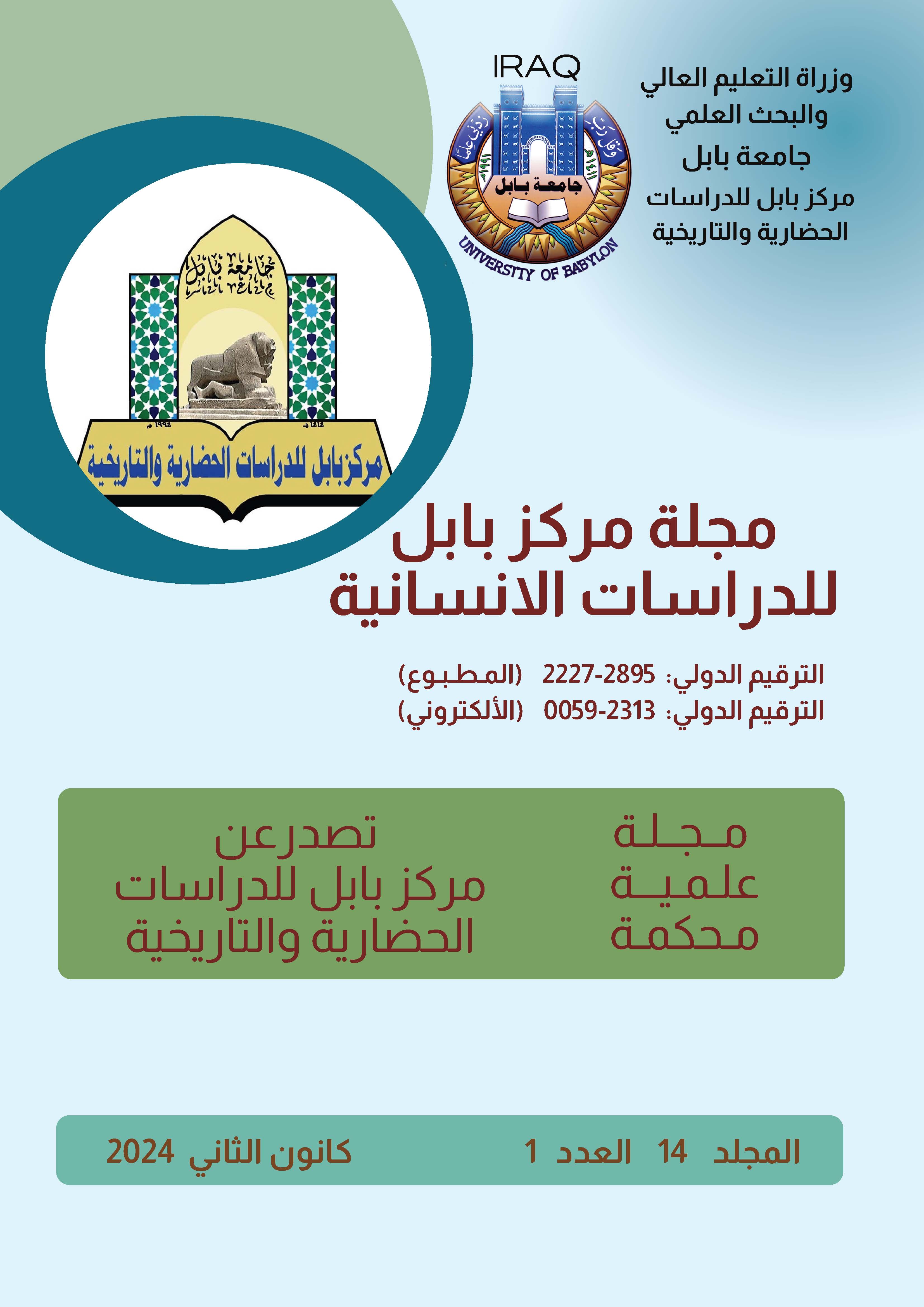الدلالة السياقيِّة لاقتران الفعل المضارع باسم الفاعل في النص القرآنيّ
الكلمات المفتاحية:
الدلالة/ السياق / الاقتران / دلالة الفعل المضارع / دلالة اسم الفاعل/ الصيغة الصرفية للفعل المضارع/ البنية المتشابهةالملخص
تناولنا في هذا البحث الدلالة السياقية لاقتران الفعل المضاع باسم الفاعل في النفس القرآني. وبدا لنا في ضوء ما وقفنا عليه من شواهد قرآنية إنَّ هذه الدلالة في صور كثيرة وتتداخل مع وظائف نحوية أخرى .
وقد قسمنا البحث إلى وقد قسمتُ البحث على مبحثين فكان المبحث الأول تحت عنوان: دلالة الفعل المضارع بين القدماء والمحدثين، أما المبحث الثاني فعنوانه: شواهد تطبيقية لدلالة اقتران الفعل المضارع باسم الفاعل ، حيث تناولت فيها عددًا لا بئس به من الآيات القرآنية المباركة التي ورد فيها الفعل واسم الفاعل من بنية واحدة متشابه بينت من خلال هذا المبحث الدلالة السياقية للألفاظ من خلال الاقتران وذلك من خلال ما ذكره ارباب المعاجم وكتب اللغة وآراء أصحاب التفسير في ذلك ثم ختمت البحث بخاتمة تناولت فيها أهم النتائج التي توصلت إليها اذكر منها :
أولًا: ترجح دلالة الفعل المضارع على الحال، وذلك إذا كان مجردًا من القرائن.
ثانيًا: تعين دلالته على الحال، وذلك إذا اقترن بـ(الآن) وما في معناه نحو: زيدٌ يقوم الآن، ( قد)، أو بقرينة معنوية، أو إذا نفي بـ( ليس، ما، إن) نحو: ليس خلق الله مثله، وقوله تعالى: ﴿ قُلْ مَا يَكُونُ لِي أَنْ أُبَدِّلَهُ مِن تِلْقَاء نَفْسِي إِنْ أَتَّبِعُ إِلاَّ مَا يُوحَى إِلَيَّ﴾ (يونس: 15)، أو جاء بعد (إذا) الواقعة بعد القسم أو عطف على حال أو عطف عليه حال.
ثالثًا: دلالته على الاستقبال، وذلك إذا سبق بأحد حرفي التنفيس(السين وسوف)







